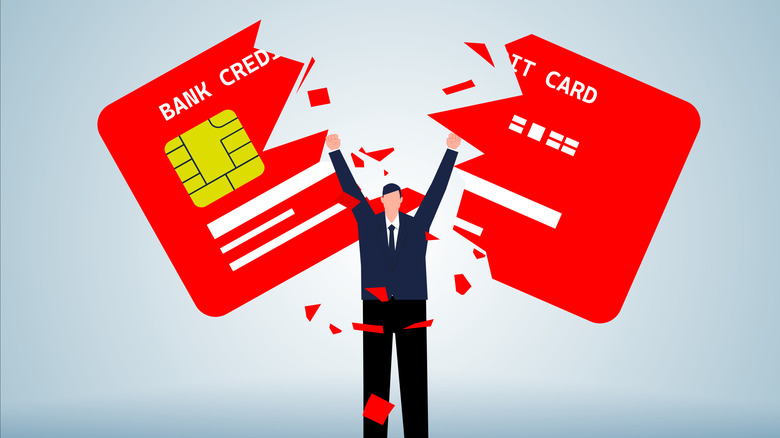Hitting These Huge Financial Milestones Will Change Your Life
The life of a contemporary saver is filled with hazards, setbacks, and the occasional triumph. Worry over new tariff expenses that saddle the end user with additional costs, inflation concerns that can quickly evaporate spending power, and much more can place modern Americans in a bind financially. But there are a number of high points in the financial life of a salary earner and saver alongside these struggles. From setting up a new 401(k) account and gaining access to employer contribution match programs (missing out on this benefit can be a huge financial mistake) to buying a home, there are a number of guideposts that signal the way forward.
These huge financial milestones are often life changing, even if they seem inconsequential at the time or their fiscal impact is crowded out by the emotional excitement of the achievement. In reality, targeting each of these stepping stones will see your financial journey transition from one major success to the next. In a way, these milestones act like checkpoints in a video game, providing a "save point" of sorts along your voyage through life. Unlike the gaming world, these milestones have lasting and impactful consequences—which can be tremendously fruitful or damaging when missed.
Landing your first full-time job
Perhaps the first important milestone that many people will arrive at involves a shift in the circumstances of their employment. A part-time job is frequently a kind of rite of passage for younger workers. Those in their teens and early 20s make up the bulk of part-time workers in America. By the time Americans have reached the age of 25, most have transitioned into full-time employment. Part-time work is an ideal means of delivering a steady stream of financial backing to help support other endeavors you may be pursuing. Those in high school and college often take on part time employment, and other young people engage with the labor market in this fashion as they pursue other interests in their youth.
Eventually, the financial demands of a typical adult lifestyle become too pressing for part-time employment to support. If you want to move out of your parents' house, buy a new car, or enjoy vacations that feature more than just a bare-bones budget, you'll likely need to make this switch. With that being said, there are plenty of hourly and part-time opportunities out there that can mix and match well together, enabling some workers to engage with the job market as a sort of gig employee on their own terms. Still, while a full-time role tends to lack flexibility that can be found elsewhere in the job market, the financial boost and overarching stability provide a much needed change of pace.
Crafting your first budget (and sticking to it)
Regardless of whether you are 15 or 50, the importance of a budget can't be overstated. Some people meander through their financial lives without a budget in place for years on end. Others engage with this task right away and continue to refresh their accounting to ensure good stewardship over their finances both in the present and projected out into future needs. The first time you sit down and look through your expenses, you're almost certainly going to be stressed by the task. There are even plenty of smaller expenses that people forget to include in their budgets. The more you dig into this task, the more it may feel like you're slogging through a swamp. But pressing ahead and completing your budget is an important and truly transformational milestone. Building a budget gives you far greater insight into where you may be lacking good financial management practices. For instance, the average American spends as much as $219 per month on subscription services, many of them are expenses that have fallen through the cracks.
You may find that there's not enough room in the budget to cover as much discretionary spending as you would like. Learning this can be a real bummer, but it gives you a clear picture of your current finances. Budgeting allows you to be responsible with your finances and prioritize what you want and need in an intelligent way. It's also important to note that sticking to your budget is really the crux of this milestone. It's not enough to explore your finances and then throw the action plan in the trash.
Opening your first retirement account
Beginning the journey of saving for retirement won't feel like a consequential action at first. Opening an account is fairly simple, and making your first deposit will see your balance jump up by just a small margin. But this first step toward retirement is far more impactful than it seems. Your best friend when saving for the future is the value of time. Retirement accounts benefit from compound interest adjustments with far more velocity than any other investment you'll make. Generally speaking, the money you deposit in a retirement account can't be accessed until you turn 59 ½. If you open a 401(k) or Roth IRA account at 18, the money you deposit won't be ready for you to use for roughly four decades. But over this span of time your money will grow exponentially. With a modest rate of return invested in growth assets like index funds, you can expect to see your money double almost every seven years. This means you'll see nearly six doubling events on any money deposited with the opening of your accounts. $1,000 deposited at 18 is on pace to turn into $64,000 after six doublings, as an example.
The reality is that saving for retirement is something that every American will need to do. Beginning your retirement savings in your 20s, roughly in line with the transition from part-time to full-time employment, will mean that you only need to make modest monthly contributions. The earlier the better, and this small decision in your youth will quickly grow into what feels like the most important financial decision you have ever made.
Launching and growing your emergency fund
The emergency fund is a savings tool that every American must prioritize for themselves. Your emergency fund doesn't have to feel like a monumental savings task. A healthy emergency reserve can start with $1,000, however a fully-stocked backstop should have at least three months' worth of coverage for essential expenses (your grocery needs, mortgage or rent payments, and utilities, to name a few key inclusions). It can't be overstated how important having this financial backstop in place is for your day-to-day life. Emergencies can come at you quickly. Some may arrive in the form of an illness or injury that prevent you from working for a short period of time, others might be a layoff or long-term change in your financial circumstances. Either way, having the funding available to help see you through hard times can be the difference maker between someone who weathers the storm with relatively little hardship and another who cracks under the pressure.
Having this buffer in place is one of the most important tasks you'll have in front of you early on in your career. The importance only grows in launching an emergency fund as you get older while continuing to lack this support system. Another critical thing to keep in mind is that your emergency fund shouldn't be based in volatile assets like the stock market. However, placing this money in a high-interest savings account gives you access to a small trickle of growth in the form of expanded interest payments that can help fight rising inflation or provide a small stream of income to support other needs.
Getting a credit card
Opening your first line of credit is a big milestone. This change in financial circumstance can be a dangerous road, however. Newly expanded spending power can be a blessing for those who manage this opportunity with grace and intelligence. It can also be a siren call to initiate wasteful spending and problematic budgetary management. Getting your first credit card is a big step toward additional borrowing opportunities. This can act as a baseline for how you'll manage credit going forward, and it's important to apply for a card in order to set yourself up for larger borrowing needs in the future, like your first home or a car loan.
While some financial pundits suggest avoiding debt products altogether, the real world unfortunately demands that most people utilize them, but responsibility is key. Getting your first credit card may come in the form of a secured card, or it might be a standard offering with no reward options and a low credit line. That's alright, and no matter the shape it takes, it will help you launch new financial opportunities in the future if you manage it well.
Paying off your credit card debt entirely (or finding balance with your credit accounts)
All kinds of life circumstances get in the way of good credit stewardship. Whether you've been a little reckless with your line of credit or not, it's common in the modern marketplace to carry over debt and pay a (sometimes substantial) price for it in the form of interest adjustments. 60% of Americans carry a credit card balance from month to month, signaling that this is a widespread problem that people deal with rather than a small issue that only applies to handful of consumers. Even though this is commonplace, one critical milestone that most Americans envision for themselves is a debt-free lifestyle. Some lending products like mortgages and student loans will require a lengthy repayment process over the course of decades, but eliminating credit card debt is something you can do in a much shorter span. Living within your means and perhaps even shrinking your upcoming expenses for a short time so that you can prioritize credit card repayment will save you significant amounts of money over the long run.
Everyone will have their own unique circumstances, and some people will want to eliminate credit card debt and then stop using their cards. Others might look to find balance that allows them to use their card for routine spending and then pay it off in full every month. This can be a valuable means of accumulating rewards points that helped cut the costs of vacations, large expenses, and more. But once again, approaching this task with responsibility at the forefront is crucial.
Landing a raise at work
Many employees will receive cost-of-living adjustments in their compensation package on a routine basis. Small increases in your paycheck to account for inflation and other financial realities aren't the same thing as a significant raise. Landing a big raise as a result of your hard work or a transition into a new role can be a huge financial boon. A major change in your salary opens up plenty of new avenues for your financial present and future. Your first big salary jump feels like a major moment in life, and it certainly is. However, with this windfall comes a new layer of responsibility that can make or break the following months and years.
A raise that sees your cash flow jump significantly can be an opportunity to increase funding for important action items in your budget. Upgrades to your home, additions to your monthly savings targets, and the other opportunities can make a big difference in your lifestyle and future stability. On the other hand, more money in your paycheck can translate into increases in discretionary spending. Continuing to live below your means is critically important and it becomes even more pressing when your financial circumstances change for the better. Lifestyle creep is a real threat and is particularly pervasive among those who have recently seen a jump in their cash flow. What follows can be painful readjustment or a massive opportunity to inject new life into elements of your saving strategy or important lifestyle upgrades that you've been keeping on the back burner.
Buying your first home
Millions of Americans want to become homeowners. Buying your first home gives you access to an asset that pulls double duty. Not only does this give you a place to live that you can reshape in any way you see fit, but it's also a proven tool to support continued financial growth over the long term. Building wealth isn't easy, but owning your home places a stable asset that has proven itself to experience near-continuously increasing value over the long term as a definite advantage in your corner.
The transition from renter to owner is a milestone that feels impactful and important, but it's one that is routinely overshadowed by the emotional elements inherent to taking hold of your own set of keys for the first time. Make no mistake about it, becoming a homeowner is a big responsibility, but it's one that comes with tremendous financial value. Owning your home affords less physical mobility, to be sure. A temporary downturn in the market can make selling your property a significantly bad decision if moving to a new community is something you hope to achieve. However, that trade off comes with immense long-term financial expansion. Barring the presence of housing crisis conditions, over the long-term homeowners tend to see an average increase in the value of their property to the tune of close to 5% every year (since 1992).
Reaching your first $100,000 savings hurdle
Those saving for retirement will certainly be eyeing up whole numbers that put them over the top of certain savings milestones. One of the most important hurdles you'll navigate around is the $100,000 mark. This is the hardest savings goal to achieve. Whether in your retirement portfolio or elsewhere, arriving at this figure takes long-term dedication and a will to see the process through. Ticking over from a five-figure savings value to one with six digits feels truly impactful. The psychological weight of this changeover is enormous. But what this milestone does to your finances is perhaps even more valuable.
Because of the value of compound interest, much of the work in getting to your first $100,000 falls upon you, the individual saver. But each individual $100,000 milestone after that first one gets easier, and more importantly, quicker. With a moderate-to-significant investment pace, it takes around eight years to hit this target—that's eight solid years of uninterrupted contributions and a priority placed on your wealth building tasks. But hitting the $200,000 threshold demands a focus period of roughly five years because of how much heavy lifting your principal value does alongside your deposits. The time to hit each subsequent milestone becomes shorter with each passing figure.
Rebalancing your portfolio to instill competent diversification
Many early investors like what they see in certain types of assets. Investing in a company you know is a great way to kick start your journey in the stock market. Personal knowledge of a company or market sector affords you a critical element of additional knowledge that you can use to make smarter decisions. But novice investors sometimes pour all of their capital into these familiar faces. It only takes one market correction to show that this strategy lacks depth and longevity. After weathering your first jump scare in the stock market, one of the first things that many investors do is look to diversify their portfolio. Some might opt to sell out of certain positions in order to free up cash to buy new assets. Others will keep their investments strong and shift the focus of new contributions that they make going forward. Both strategies have their place in an intelligent portfolio that's well-managed.
No matter how you go about diversification, rebalancing and spreading your investments across a number of sectors and assets remains a core tenant of good investment management. For a newer investor who has experienced a market downturn that negatively impacted an unbalanced portfolio, making this shift signals growth as a trader. It can't be overstated how important this knowledge shift is as you continue your journey toward improved financial independence for a well-funded retirement somewhere in the future.
Setting up college plans or saving for other needs your children may have
Those who are struggling to manage their own financial needs can sometimes overlook important additional tasks. On the other hand, consumers who have a healthy relationship with debt products, have invested adequately in their own retirement, and enjoy the stability of a well-funded emergency savings account will often look to tackle additional financial opportunities that can make a huge impact in their life and the lives of their loved ones.
Many parents want to help set their children up on a path to success. In many cases, this means creating a reservoir of financial support that will help start their transition into adulthood. Some children will plan to go to college, and investing in a college savings asset like a 529 plan can take the pressure off of everyone involved in funding this educational expense later in life. Starting when your children are young gives you the greatest timeline for saving to meet this expense head on. 18 years of compound interest can make the expense a far more manageable when it comes time to start paying the bill. Other children will want to set up their own businesses or invest in their future in other ways. Setting money aside to support trade school, purchasing their own first home, or tackling some other big expense that will assist in managing an important step forward can make a huge difference for parents wanting to help loved ones looking to make their way in the world.











